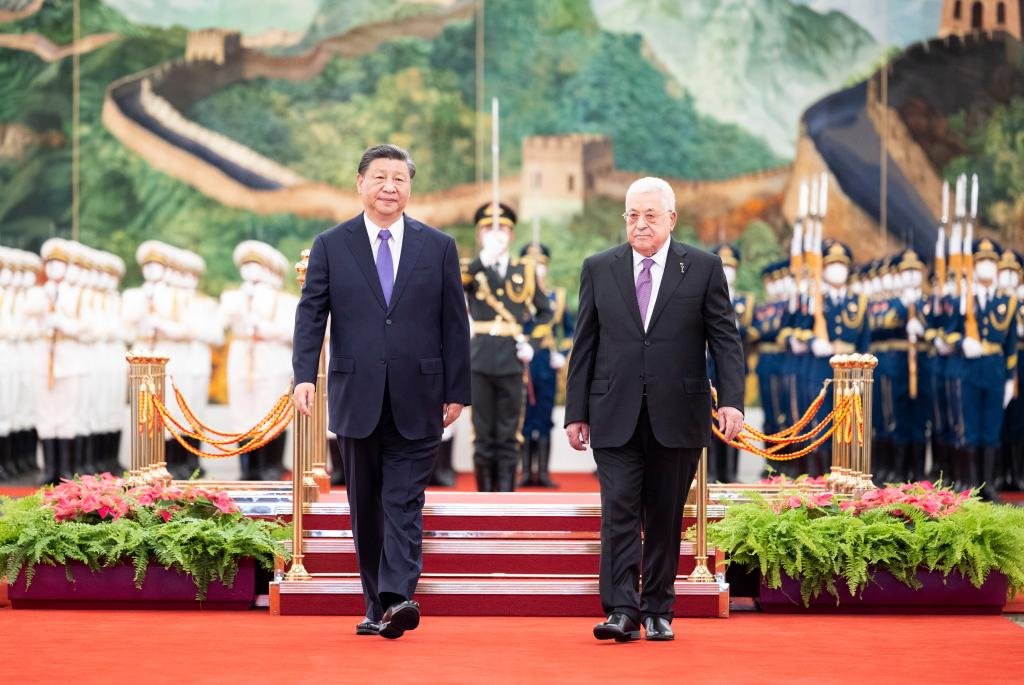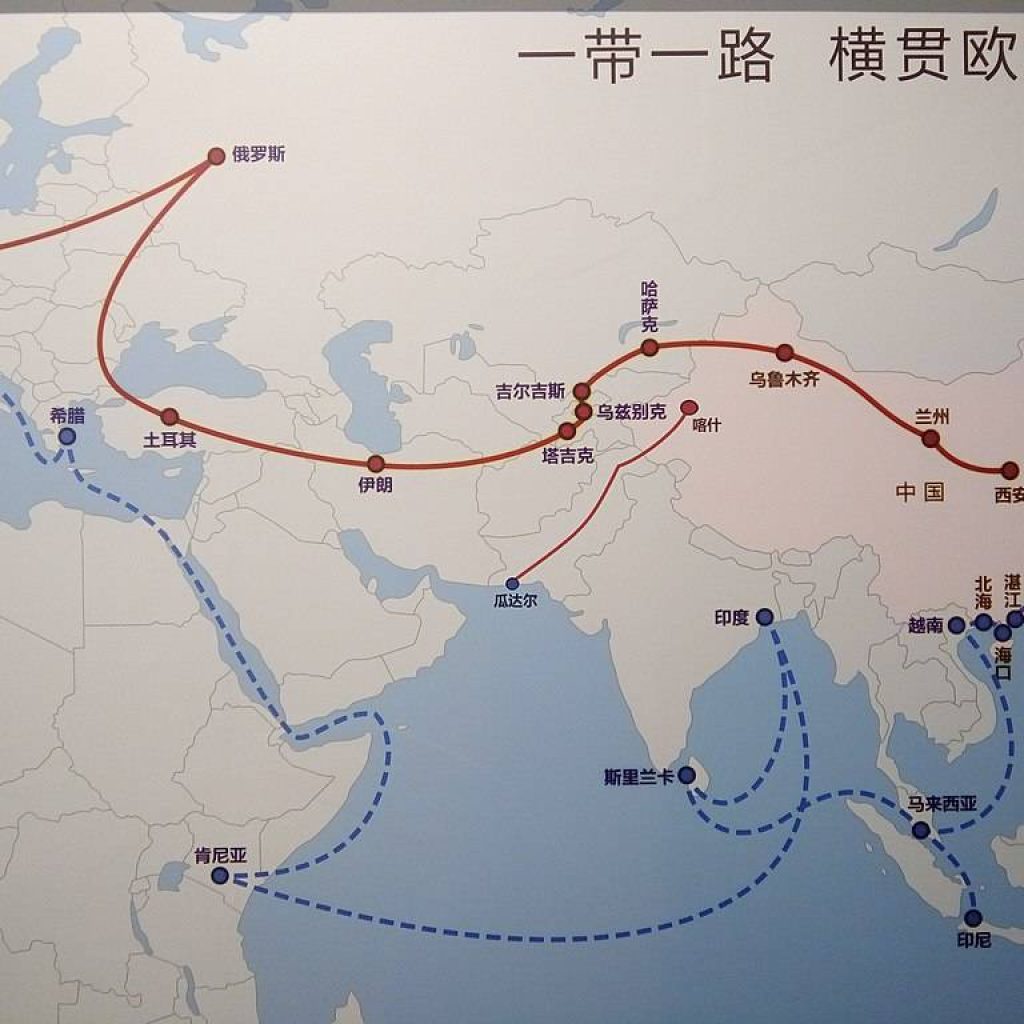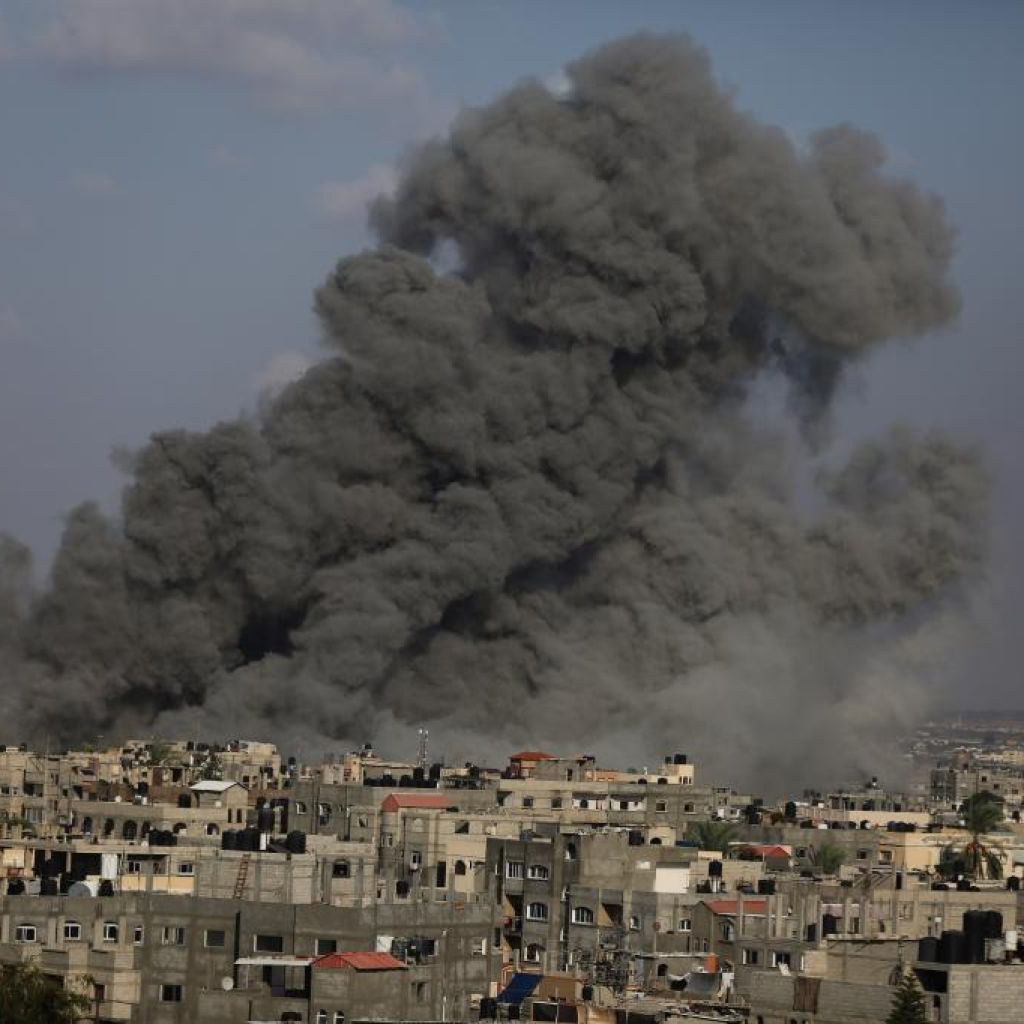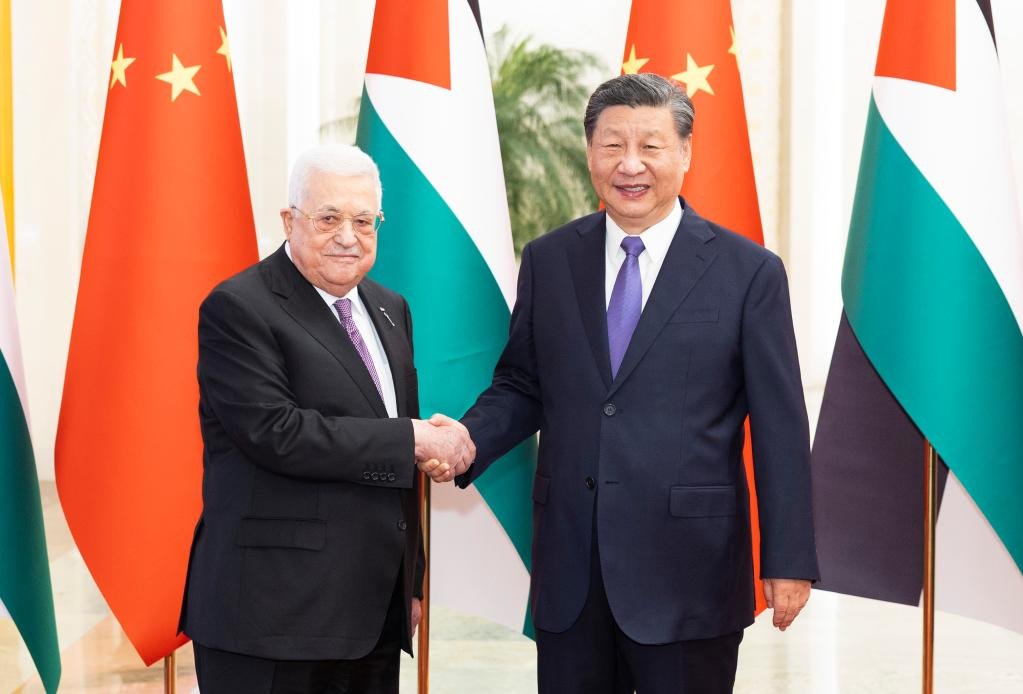Beijing urged an “immediate cease-fire” in response to the Hamas attack on Saturday, reiterating support for a two-state solution with an independent State of Palestine, without condemning Hamas….reports Mohammed Anas
In the haze of the Hamas-Israeli conflict, the future of both China and the US, two major players weaving a myriad of alliances in the Middle East, looks uncertain. While the US clout was already waning, the recent conflict will make its position even more challenging. On the other hand, China is in a curious situation to win and lose.
In June this year, China had offered to mediate to settle the Israel-Palestinian dispute when Palestinian President Mahmoud Abbas had visited Beijing. China had in fact pompously vowed to apply “Chinese wisdom, Chinese strength” as balm to cover festering wounds in the region.
In August, China sent a special envoy to Tel Aviv to meet Israeli Prime Minister Benjamin Netanyahu to convey President Xi Jinping’s message, which according to the media, was to convince the rightwing leader for “concessions” in negotiations over the Palestine issue.
Within two months, these moves were shattered, much like US President Joe Biden’s efforts to broker a Saudi-Israeli deal!
Beijing’s official response to the Hamas attack on Saturday called for an “immediate cease-fire” and the repetition of its support for a two-state solution with an independent State of Palestine as a way out of the conflict. It did not condemn Hamas.

Later on Sunday, China’s permanent representative to the United Nations, Zhan Jun, said China was worried about escalation.
“What’s important is to prevent further escalation of the situation and casualties of civilians,” Zhang told reporters before an emergency closed-door security meeting. “We condemn all attacks against civilians,” he stressed.
President Xi has yet to make any public statement.
Initial Setback to Belt and Road Initiative
The current crisis may also hit China’s relationship with Israel. Beijing has long tried to adopt a balanced position, by supporting Palestinian statehood while also maintaining strong economic ties with Israel.
China has ramped up trade and investment in sectors from technology to infrastructure. Israel has participated in Beijing’s Belt and Road initiative.
Galia Lavi, a specialist in the Belt and Road Initiative and China-Israel relations at the Tel Aviv-based Institute for National Security Studies, said Israel had been disappointed by China’s “lax response” to the Hamas attacks.
Wang from Northwest University agreed that Israel’s criticism of China may have some negative implications for the Belt and Road projects, but he did not expect existing schemes to be seriously affected.
“Projects like the Haifa Port, they may be affected and be suspended for now, but the impact would be very small.”
The Bayport terminal in Haifa, a strategic gateway to the Mediterranean, was built and operated by the state-owned Shanghai International Port Group.

Limited role as peacemaker
Experts say this initial response may expose Beijing’s limited influence in the region, despite official propaganda talking up China as the world’s new peacemaker.
“China doesn’t really have the experience or expertise in the region to make a meaningful change” on the long-running, complex Palestine-Israel conflict, said Jonathan Fulton, an Abu Dhabi-based senior non-resident fellow at the Atlantic Council.
“You don’t see governments in the region saying ‘what’s China’s solution to this’ because they’re not seen as a credible actor here yet.”
Despite its claims of neutrality, coverage of the conflict on China’s state-run television appears more slanted.
Hamas fighters’ killing of Israeli civilians was given little air time on the country’s most watched news program on state broadcaster CCTV. Instead, the prime-time show focused primarily on Israel’s airstrikes on Gaza – and the scenes of devastation they created there.
Chinese state media were also quick to blame the US for the conflict now raging in the heart of the Middle East.
In an editorial Monday, the Global Times, a tabloid nested under the Party’s Peope’s Daily network, criticized Western countries – especially the US – for “taking sides” on the issue and “fanning the flames rather than cooling down the situation.”
“This is a consistent pattern for Western countries in many conflict regions, where they often create substantial obstacles to crisis resolution,” it said.

Gains for Beijing
Despite immediate hiccups, Beijing stands to gain the most in the post-conflict Middle East. While the US’ peace plans seem to have run into jeopardy and thus its image will be hit proportionately, Beijing’s partnerships with all parties – even Israelis and Palestinians – are not likely to suffer much. Israel will not push back mutual commercial interests with Chinese and infra projects that Chinese companies are pursuing in various Israeli cities, airports and ports.
Beijing’s relations Iran and Saudi Arabia too will remain intact; however Saudi’s relations with the US may not remain as flourishing. China will also cultivate more robust multi-pronged ties with Iran, and Russia also as a partner.
The India-Middle East-Europe Economic Corridor that was supposed to link Israel and Saudi Arabia via trade links may not take off at least as fast as it was conceived. Since this corridor was touted to be a US counter to China’s BRI, Beijing will consider it a victory without efforts.
The US Navy had shifted a number of warships and aircraft carriers, some from the Indo-Pacific, to positions near Israel after the deadly Hamas attack keeping in view that the conflict might turn out to be broader putting Israel in serious peril.
The USS Gerald R. Ford Carrier Strike Group, which is the largest warship in the world, in addition to the Ticonderoga-class guided missile cruiser USS Normandy and four Arleigh-Burke-class guided missile destroyers — USS Thomas Hudner, USS Ramage, USS Carney and USS Roosevelt has been moved to the Mediterranean when it received orders to deploy. Depending on its precise location, it could have to travel over a thousand miles.
The US naval focus turning to the Mediterranean will give an edge to China in the Indo-Pacific. The US already sees China as a power which can initiate an aggressive conflict in the Indo-Pacific. This view along with China’s assertive posture in the region including its claims in the South China Sea, East China Sea, the Taiwan Strait and the Philippine Strait has raised security concerns among the countries here, including India. The fallout of the Hamas-Israeli conflict will aggravate such fears in the Indo-Pacific theater.













